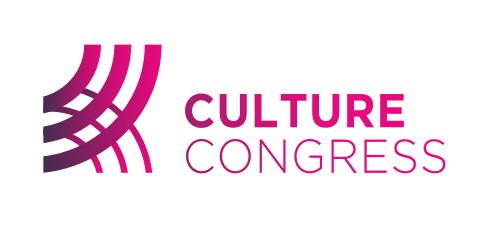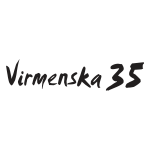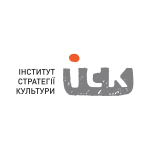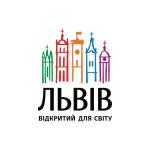Why the Culture Congress and why in Lviv. The Culture Congress in Lviv is a discussion platform for professional critical review of the cultural process. The event will take place once in two years. This event is designed for the representatives of the field of culture and aims at the development of Ukrainian cultural milieu. Each time the Culture Congress will have a new topic depending on sectoral demands and social processes. It will be disclosed through two stable components — discussion and art ones.
The idea of the biannual Congress is to respond to the lack of sustainable discussion platforms in Ukraine for comprehensive and profound analysis of cultural realia. The format of the Congress corresponds to basic goals of the Strategy of Cultural Development of the City of Lviv till 2025; the process of implementation and monitoring of the Strategy is coordinated by Culture Strategy Institute, municipal institution established in Lviv in 2018. The Congress team relies on the perception of culture as not just an integrity of certain features inherent in the society, but also as a way of living and dialogue space, the system of values and sense creation. The Congress aims to develop dialogue traditions and understanding, to establish contacts and partnership between different actors in the field of culture, including: artists, public initiatives and organizations, cultural institutions, educational institutions, authorities, business.
The Congress is to become an important event for the city, cultural milieu and society in general. Due to its cyclic nature and large scale, the event will help the cultural community to make its voice clearly heard. Besides the task to reflect on culture-shaping experience and the current cultural situation, of importance is the applied and visionary nature of the Congress — elaboration of recommendations on the development in the field of culture. In its focus are the institutional capacity and efficiency of the cultural domain in Ukraine (nationally, regionally, and locally); the opportunities for improved management in the field, development of new cultural policies, models, networks; social capacity of culture as a space for dialogues and responding to the challenges of the times. International status of the event will contribute to the appearance of new partnerships and projects, development of the image of Lviv as the Ukrainian capital of culture and a candidate for the status of the European capital of culture. The Congress is also important in a wider dimension — that of popularizing and expanding of cultural discourse in the Ukrainian society.
1st CULTURE CONGRESS
TRANSITION 1989: WALLS. MEASURES. INTENTIONS
October 11 – 13, 2019, Lviv, Ukraine
Why ‘Transition 1989’ in 2019. ‘Transition 1989’is the first Culture Congress in Lviv. Earlier, before the Culture Congress, events with a similar focus(like the 2015 Eastern Partnership Culture Congress) took place in Ukraine, but in such a format — that of a large-scale several-day forum with a practical component — we will meet for the first time in October 2019. The starting point of the Congress — chronologically and metaphorically — will be the year 1989, marked by a number of milestone events that have affected further course of history. ‘Chervona Ruta’ and Student Brotherhood. The return of the Crimean Tatars to their historical motherland and mass strikes of miners. The first free election of people’s deputies of the USSR and actual beginning of the collapse of the USSR. The Velvet Revolution, the events on the Tiananmen Square and the fall of the Berlin Wall … The event will embrace some 200 representatives in the field of culture from different cities of Ukraine and other countries: beyond the general European context or without the experience of post-socialist countries no adequate understanding of the cultural situation in Ukraine is possible.
What is the discussion program about. The participants of the discussion program of the Congress will try to jointly assess the transfiguration of the cultural landscape over the period of 1989-2019. New Europe that arose on the ruins of the Berlin Wall and the USSR made the ‘rite of passage’ (according to Arnold van Gennep). Many walls have fallen: some reformatting of states and liberalization of political institutions has taken place. Many dimensions have changed: another generation has come, social habits unknown before have become the norm, cultural landscape has changed drastically. Now we are witnessing a rise in populism and alienation between the state and the society, atomization of the society and reinforcement of conservative reactions, information oversaturation and commercialization. Can the experience of a 30-year-old ‘transition/passage’ help overcome recent challenges? What are our intentions as to the future of Ukraine and Europe, culturally non-uniform, with different identities and traumas, which, however, does not stop striving for unity and understanding?
It will have three theme blocks, within the framework of which discussions will take place: Walls. Measures. Intentions.
WALLS. What was the status of the cultural transition to the realities of an independent nation? Why has provincial flag-waving kitsch (notorious sharovarshchyna), the most superficial manifestation of national culture, become its predominant showpiece? What is the role of culture in the process of the post-Soviet and recent decolonisation of Ukraine? Are walls mere partitions or can they offer protection?
MEASURES. Is a culture a measure of a society’s development level? What is the significance of institutions and policies in the cultural ecosystem? What is the role of criteria, criticism as an institution, or revisionism in the cultural process, and how can we evaluate their effectiveness? How to avoid losing our directions in the overcrowded informational and cultural flux of today?
INTENTIONS. Who and how affects cultural agenda today? Is it even possible and necessary to manage the cultural process? What changes – regulatory, institutional, or educational – are necessary in Ukraine’s cultural sector? What impact can culture have on generating critical attitude and trust today?
Triennial of contemporary art ‘Ukrainian Cross-Section’ (Ukrainskyi Zriz)
The triennial will become a separate component of the Congress. Its exhibition will consist of works offering artistic insights into the predicament of ‘transition’, the formal rehash of Soviet rituals into a national wrap, and a lack of new meanings consistent with existing realities and challenges. It will be the fourth triennial. Previously the project took place in Poland, in 2010 and in 2013 — in Lublin, in 2016 — in Wroclaw.
For whom and why. The Congress participants are artists, critics, managers in the field of literature, music, theatre, art, representatives of the authorities in the domain of culture, as well as historians, museologists, social scientists, culture scientists, social psychologists, philosophers, journalists-reviewers from Ukraine and from abroad. Of importance is active involvement of the discussion program participants: engagement in the discussions, ideas as to possible changes in the field of culture, possibility to monitor the status of cultural process, to implement projects corresponding to the Congress values and vision. An application for participation in the Congress can be filled out here.
The results of panel discussions will be recorded in the form of recommendations for the Ukrainian cultural milieu in general and, in particular, for the state bodies responsible for the policy in the field of culture. The project may have a positive effect on the whole cultural eco-system: organizations, environments, artists will have an opportunity to share their knowledge and skills, to launch intersectoral projects, to initiate the necessary transformations in their sectors.
Where and when. The main Congress location where we will work on October 11-13 is the old terminal of the Lviv airport. This sample of Stalin architecture (1955) will become a place to meet and reflect, a symbol of transition and imminence of the desired changes.
The team of the Culture Congress. Organizers of the Culture Congress: NGO ‘Virmenska 35’, municipal institution ‘Institute of Culture Strategy’, Lviv City Council, the project is implemented with support of Ukrainian Cultural Foundation.
Vision group of the Congress consists of: Andrii Dakhnii, Zenovii Mazuryk, ZorianaRybchynska, Yurii Prohasko, Ostap Slyvynskyi, Oksana Forostyna, Viktoriia Sadova, Oksana Dashchakivska, Vlodko Kaufman, Bohdan Shumylovych, Antin Borkovskyi.
Discussion and art programs are coordinated by the curator. Three thematic panels:
program curator — Vira Baldyniuk, editor-in-chief at KORYDOR
curator of the panel ‘Walls’ — Antin Borkovskyi, journalist, public activist.
curator of the panel ‘Measures’ — Zoriana Rybchynska, head of Cultural Studies Department of UCU Humanitarian Faculty, expert of CHOICE project
curator of the panel ‘Intentions’ — Zenovii Mazuryk, lecturer of UCU of Cultural Studies Department, museologist, co-founder of ‘Association of Museums and Galleries’.
Triennial of contemporary art ‘Ukrainian Cross-Section’:
curator – Vlodko Kaufman, performer, artist, graphic artist, curator and coordinator of a range of art-projects and festivals, co-founder of ‘Institute of Contemporary Art’ (Lviv)
co-curator – Serhii Petliuk, media artist, author and co-curator of many art projects in Ukraine and abroad
coordinator – Lidiia Savchenko-Duda, co-founder and art-coordinator of art projects of artistic gallery ‘Dzyga’, art-director of festival ‘Days of Performance Art in Lviv’ (since 2011).







